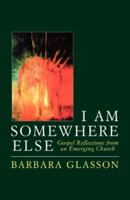Discourse on the Method: The Original text with English Translation
Select Format
Select Condition 
Book Overview
Discourse on the Method, or by its complete title "Discourse on the Method of Rightly Conducting One's Reason and of Seeking Truth in the Sciences" it is an autobiographical and philosophical treatise that was published by Ren Descartes in 1637 under the original title "Discours de la m thode pour bien conduire sa raison, et chercher la v rit dans les sciences". It is one of the most know works of Descartes, as it is the source of the famous phrase "I think, therefore I am" ("Je pense, donc je suis" or in its more popular Latin translation "Cogito Ergo Sum") and it is considered to be one of his most influential and important works. The book was intended as an introduction to three of his works "G om trie, M t ores and Dioptrique" and in it, Descartes takes the route of doubting everything, in order to assess the truth from a fresh perspective, creating a view of the world based on perceptions that have been dismantled and broken down to a fundamental level and rebuilding them one truth at a time.
Format:Paperback
Language:English
ISBN:0520249267
ISBN13:9780520249264
Release Date:January 2007
Publisher:University of California Press
Length:362 Pages
Weight:1.73 lbs.
Dimensions:0.9" x 6.9" x 9.9"
More by Barbara Glasson
Customer Reviews
5 customer ratings | 5 reviews
There are currently no reviews. Be the first to review this work.


























